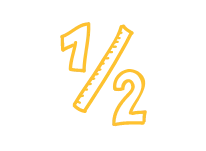Embarking on the challenging and rewarding journey of the International Baccalaureate (IB) program is a significant step toward academic excellence and personal growth. At the heart of this internationally acclaimed curriculum are three core components that not only define the IB experience but also set it apart as a holistic and transformative educational pathway.
For aspiring IB students, understanding the core components—Theory of Knowledge (TOK), Extended Essay (EE), and Creativity, Activity, and Service (CAS)—is the first step in unlocking the full potential of this rigorous program. Each element contributes a unique dimension to the educational journey, molding students into critical thinkers, independent learners, and responsible global citizens. In this article, we'll explore what each of these core elements entails and how they collectively shape the IB experience.
1. Theory of Knowledge (TOK)
What is TOK?
TOK, short for Theory of Knowledge, is a unique and foundational course in the IB program. It's designed to encourage students to explore the nature of knowledge itself and examine how we come to know what we know. TOK goes beyond subject-specific content and focuses on the broader questions surrounding knowledge, its acquisition, and its applications in our lives.
Curriculum Parts:
The TOK curriculum is organized around a set of key components and concepts:
1. Knowledge Questions: At the heart of TOK are knowledge questions. These are open-ended questions that challenge students to think critically about different ways of knowing and areas of knowledge. For example, a knowledge question might be, "To what extent is emotion a reliable way of knowing in the natural sciences?"
2. Ways of Knowing (WOKs): TOK explores various ways we acquire knowledge, such as perception, reason, emotion, language, and intuition. Students analyze how these ways of knowing shape our understanding of the world.
3. Areas of Knowledge (AOKs): TOK examines different domains of knowledge, including the natural sciences, mathematics, history, the arts, ethics, and more. It prompts students to consider how knowledge is constructed and evaluated within each area.
4. TOK Vocabulary: The course introduces specialized terminology, including terms like epistemology (the study of knowledge), paradigm (a dominant theory or model), and bias (a prejudice or inclination in favor of or against something). These terms help students engage in meaningful discussions about knowledge.
5. Real-Life Applications: TOK emphasizes the practical application of knowledge concepts in real-life situations. Students explore case studies, debates, and examples to see how TOK concepts relate to their experiences and the world around them.
Assessment:
TOK assessment involves two components:
1. TOK Essay: In the TOK essay, students respond to one of several prescribed titles, which are broad questions or statements related to knowledge. They must construct a well-structured essay that explores the chosen title, provides arguments, counter arguments, and real-life examples, and evaluates different perspectives on the issue.
2. TOK Presentation: The TOK presentation is an oral assessment where students investigate a real-life situation or issue and apply TOK concepts to it. They present their findings, discuss the implications of their analysis, and engage their peers and teacher in a reflective dialogue.
The TOK essay and presentation are graded using a matrix of assessment criteria, including aspects like clarity, argumentation, depth of analysis, and engagement with TOK concepts. Students receive a combined score out of a maximum of 30 points for their TOK work, which contributes to their overall IB Diploma score.
TOK is not just about finding answers; it's about asking thought-provoking questions, engaging in critical reflection, and developing a deeper understanding of the complexities of knowledge. It encourages students to challenge assumptions, consider different perspectives, and appreciate the nuance in our understanding of the world, making it a cornerstone of the IB program's commitment to holistic education.
2. Extended Essay (EE)
What is the Extended Essay (EE)?
The Extended Essay (EE) is a significant independent research project that serves as a cornerstone of the IB program. This extended essay allows students to delve deeply into a subject of personal interest within one of the IB's approved subjects, typically chosen from the six subject groups: Studies in Language and Literature, Language Acquisition, Individuals and Societies, Sciences, Mathematics, and the Arts.
The EE process can be broken down into several key components:
1. Selecting a Research Question: Students begin by choosing a specific research question or topic that genuinely interests them. This question should be sufficiently focused to allow for in-depth investigation while still being broad enough to provide multiple avenues for exploration.
2. Conducting Research: Once the research question is defined, students embark on a journey of exploration and investigation. They gather information from various sources, including books, academic journals, interviews, and experiments, depending on the nature of their topic.
3. Structuring and Writing: With research in hand, students must structure their essay logically, ensuring that it presents a clear argument and supports it with relevant evidence. The EE typically consists of an introduction, body, and conclusion, along with appropriate citations and a bibliography.
4. Reflection and Revision: The process often involves multiple drafts and revisions, with students reflecting on their work and refining their arguments, writing, and organization.
5. Presentation: After the essay is written and polished, students often have the opportunity to present their findings to peers, teachers, or other interested individuals.
Assessment:
The Extended Essay is assessed using a set of criteria that include research, analysis, argument, engagement with the topic, and overall presentation. Students can earn a maximum of 34 points for their Extended Essay, which contributes to their total IB Diploma score.
3. Creativity, Activity, and Service (CAS)
What is CAS?
Creativity, Activity, and Service (CAS) is a core component of the IB program that emphasizes personal development and community engagement. CAS is designed to encourage students to go beyond academic pursuits and engage in creative activities, physical activities, and meaningful service to others.
Curriculum Parts:
The CAS program involves the following components:
- Creativity: This category encompasses a wide range of creative activities, including the arts, music, drama, writing, and more. Students are encouraged to explore and develop their artistic talents, pushing the boundaries of their creativity.
- Activity: The activity component focuses on physical well-being and involvement in sports, fitness, and other physical activities. It encourages a healthy lifestyle and personal growth through physical challenges.
- Service: Service involves actively contributing to the community and addressing real-world needs. Students engage in service projects, volunteer work, and initiatives that make a positive impact on others and society as a whole.
- Reflection: Throughout their CAS experiences, students are expected to engage in regular reflection. They document their activities, describe the skills they've developed, and reflect on how these experiences have shaped their personal growth and understanding of their role in the community.
Assessment:
CAS is not graded on a pass-fail basis. Instead, students must complete the CAS requirements, which involve a specified number of hours in each of the three categories (creativity, activity, and service), as well as reflection activities. The CAS program is about personal development and growth, fostering qualities like empathy, leadership, and social responsibility.
Together, the Theory of Knowledge, Extended Essay and Creativity, Activity, and Service components of the IB program provide students with opportunities for personal growth, intellectual exploration, and meaningful engagement with their communities. These core elements are essential in shaping well-rounded, socially conscious individuals who are prepared for success in both higher education and life beyond the classroom. With expert IBDP tutoring, get the competitive edge you need to excel in the IB Diploma Programme by signing up here.












